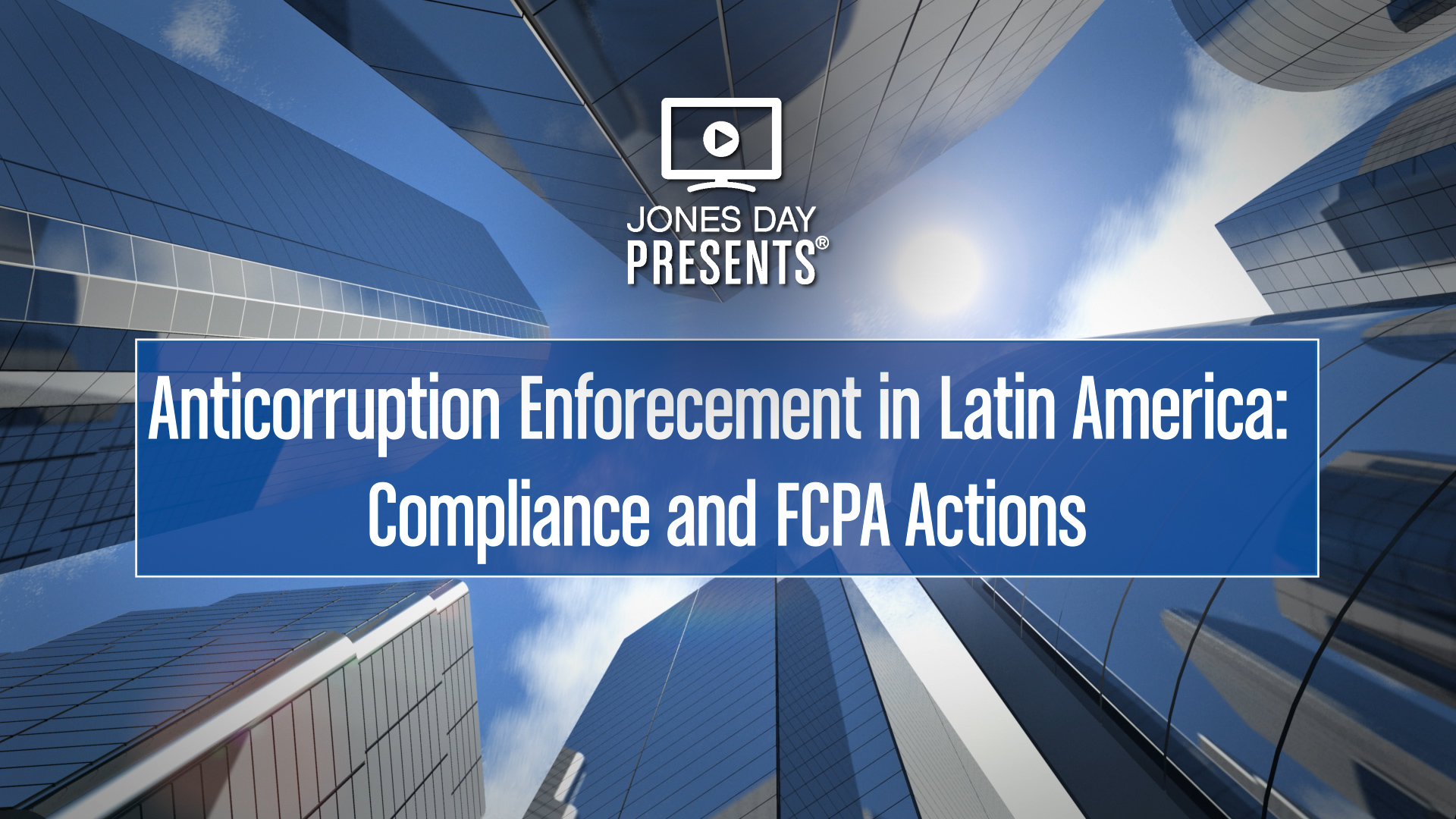
JONES DAY PRESENTS® - Anticorruption Enforcement in Latin America: Compliance and FCPA Actions
Foreign Corrupt Practices Act (FCPA) investigations and enforcement actions in Latin America, under the direction of the U.S. Department of Justice, have accelerated in recent years. Jones Day partner Eric Snyder talks about enforcement trends, the risks facing multinational companies, and what those companies must do to remain compliant with applicable regulations.
Read the full transcript below:
Eric Snyder:
The main trend I'm seeing in compliance, both for US or North American companies as well as Brazilian companies and Latin American companies, is they get it. They understand what's happening. They understand how much of a risk it is to their business. They also understand that there are ways to deal with it, to be preemptive, to find the problem, to bring the problem forward before the authorities find out about it. And they also understand it's not a tick the box exercise. I think compliance for a lot of these companies was almost a perfunctory checking of boxes, but then you'd find the CEO making very different comments about what he wanted his business executives to be doing.
Eric Snyder:
I think now they understand that doesn't work. Now they have to walk the walk as well as talk the talk. I think what caused that trend to start going in this direction was the enforcement actions, whether it's Lava Jato, which was the big wave of corruption, prosecutions and investigations down in Brazil, or if it was some of the work that the Fraud Section at DOJ has been doing really over the last three, four, five, six years. In the wake of Watergate, you saw the passage of the FCPA legislation, but you didn't see many investigations or FCPA prosecutions.
Eric Snyder:
Now over the last five or six years, you've seen a lot of it. In fact, you probably can look at just the past five years and see 90% of what the DOJ has done in the way of FCPA prosecutions. And companies understand that if you are the target of an FCPA investigation in the US of A, you're going to be paying a tremendous amount of money to the US government. So rather than arrive at that terrible place, they realize it's far better to have, from the CEO on down, people embracing their compliance policies to make sure that they don't fall into these investigations. The world is bigger and smaller now. We are seeing a lot more in the way of cross border business activity. Of course. I don't think though that that's the reason why we're seeing more FCPA prosecutions.
Eric Snyder:
Frankly, I think it's a growing coordination between the US DOJ and the prosecutors and the agents in Brazil, for instance. Just in the last year, I've started to see Columbia become a place where you're seeing a lot of coordination between the US prosecutors and the Colombian prosecutors, and you're starting to see prosecutions for bribery. You're starting to see extraditions from the US to Columbia, which is the opposite of what I did as a prosecutor. I spent 16 years extraditing people from Latin America, largely from Columbia. And we just saw recently, their Minister of Agriculture was arrested in the US and extradited back to Columbia to face charges that he accepted bribes and laundered those proceeds.
Eric Snyder:
So what I think we're seeing is coordination between the governments. You see countries wanting their prosecutors to crack down on corruption. And I think it's just because it's good economic policy. A country can't really grow into a first world economic powerhouse if there's not foreign investment. And you're not going to see foreign investment where there's excessive extreme corruption. So I think countries are seeing it as an economic strategy, and their prosecutors then are working very closely with the DOJ, bringing enormously complicated prosecutions, doing incredibly sophisticated investigations, and then dividing tremendous fines, billion dollar fines, dividing it with the US government at the end of the case.

